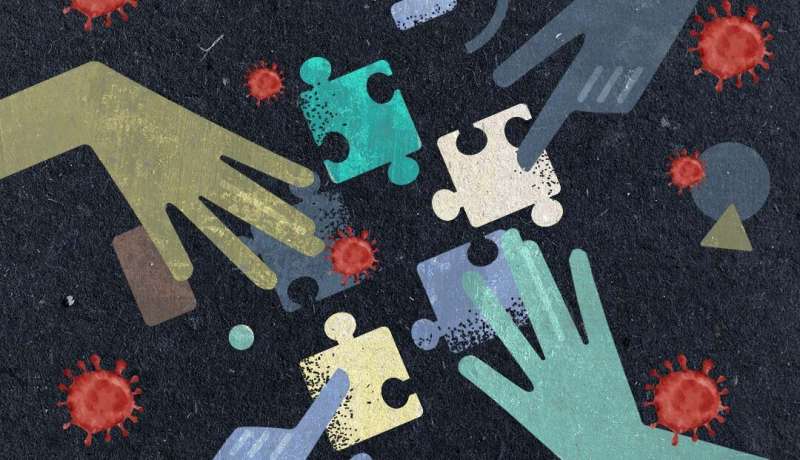
Examining health care fault lines, global supply chain instability, and vaccine production efficiency is critical in preparing for future global pandemics.
This is why a COVID-19 commission must be created by the U.S. government, experts argue in the latest issue of Science. Such a body would be similar to the 9/11 Commission, which investigated the country’s susceptibility to terrorist attacks.
Drawing on their scientific expertise, a group of former members of the President’s Council of Advisors on Science and Technology (PCAST) under President Barack Obama presented concrete recommendations for such a commission to examine, including: stabilizing public health agencies, examining earlier outbreaks, reviewing pandemic preparedness, and evaluating the United States’ responses to COVID-19.
“Eight bills have already been introduced in Congress to create such a commission, though most include only broad requirements,” said co-author Christopher Chyba, professor of astrophysical sciences and international affairs at the Princeton School of Public and International Affairs. “We know that future pandemics are coming. We call for a clear-eyed assessment of why the United States fared so poorly overall in this pandemic, as well as how particular successes were achieved. This will help the country do better next time.”
Such a commission could learn from historical events including 9/11 and Hurricane Katrina—two incidents in which the federal government failed to act proactively despite long-standing warnings. Strained relationships between state and federal governments also complicated critical responses.
Looking toward future disease outbreaks, the authors make the following recommendations for the commission to investigate:
- Stabilizing public health agencies. This includes repairing budgetary shortfalls, expanding training programs for workers, and elevating the prestige of front-line public health workers.
- Examining earlier outbreaks. Assessing historical events, including their causes and the U.S. response, can help the commission pinpoint neglect in the system and propose solutions to ensure consistent attention to threats.
- For example: When and how did the U.S. find out about the initial COVID-19 cases in Wuhan, China? How was that information disseminated within the U.S. government? American experts previously based at the CDC equivalent in China were pulled out starting in 2017. Could they have helped?
- For example: Was the U.S. too reliant on foreign manufacturers, which, in part, caused supply chain issues? If more attention was paid to the supply chain, could the vaccine stockpile have been replenished more effectively?
The authors also suggest the commission look at how COVID-19 impacted hospitals, fiscally and structurally, to be better prepared for the future. An evaluation of health equity is also needed since COVID-19 disproportionately affected people of color.
Chyba’s co-authors include Christine K. Cassel of the University of California, San Francisco; Susan L. Graham of the University of California, Berkeley; John P. Holdren of Harvard University; Ed Penhoet of the University of California, Berkeley; William H. Press of the University of Texas, Austin; Maxine L. Savitz of the National Academy of Engineering; and Harold Varmus of Weill Cornell Medicine.
Source: Read Full Article
